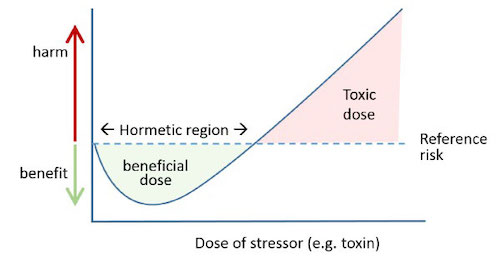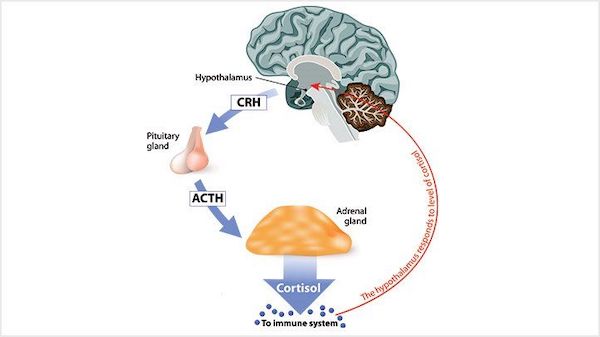Does Drinking 2 Cups of Coffee Improve Health and Longevity?

Drinking 2 cups of coffee or more per day can improve your health and longevity, say a bunch of studies. But beware that there is a downside if you drink too much, or if you drink your coffee with milk.
How can drinking 2 cups of coffee per day improve longevity or healthspan?
A recent study published in The Annals of Internal Medicine concluded that consuming coffee can offer various health benefits. It’s just one of many studies published over the last few years that assert that coffee consumption is basically good for you, given a few caveats.
Let’s tease out what is reliable information and what you need to be aware of about your coffee habit.
In this post, I will:
- Review the findings of a few studies about the health benefits of coffee consumption;
- Explain the impact coffee has on your hormones;
- Encourage you to drink your coffee without milk, per Dr. Michael Greger; and
- Show you Wirecutter magazines most highly rated coffee maker; and, of course
- Your Takeaway.
Let’s begin with a few studies that extol the healthy virtues of coffee.
What the research says about drinking 2 cups of coffee per day, or more
Drinking 2 cups of coffee per day is about the average of the 1.5 to 3.5 cups of daily coffee consumption that the aforementioned Annals of Internal Medicine study found is linked to a lower risk of dying.
The researchers analyzed demographic, lifestyle and dietary information collected from more than 170,000 people between the ages of 37 and 73 over a median follow-up period of seven years.
They found that:
- Those who drank 1.5 to 3.5 cups of coffee per day, even with 1 teaspoon of sugar, were up to 30% less likely to die during the study period than those who didn’t drink coffee. (My recommendation — toss the sugar!)
- Those who drank unsweetened coffee were 16 to 21% less likely to die during the study period, with those drinking about 3 cups per day having the lowest risk of death when compared with non-coffee drinkers.
- The data was inconclusive for those who drank coffee with artificial sweeteners (although I’d like to point out that Aspartame, NutraSweet, Equal and Sugar Twin brands are poisonous.)
Three important caveats
Here are some caveats to be aware of:
- This was an observational study. That means the data cannot conclusively prove that coffee itself lowers the risk of dying, as there may be other lifestyle factors contributing to that lower mortality risk among coffee drinkers such as a healthy diet or a consistent exercise routine, although that seems implausible to me.
- The average amount of added sugar per cup of sweetened coffee in the study was a little more than a teaspoon. This is much less sugar than usually added to many sugary drinks at coffee chains. One example: A tall Starbucks Caramel Macchiato at Starbucks contains 25 grams of sugar, about 5 times more sugar than a sweetened cup of coffee from the study.
- More isn’t better — in this study, over 4 cups per day nixed the benefits, or created harm.
Why is drinking coffee healthy?
Scientists remain unclear about why coffee can be beneficial to health.
Nonetheless, the consumption of coffee has been linked to a reduced risk of all kinds of ailments, including Parkinson’s disease, heart disease, Type 2 diabetes, gallstones, depression, suicide, cirrhosis, liver cancer, melanoma and prostate cancer.
This might be due to coffee’s antioxidant properties, which can prevent or delay cell damage. Coffee beans contain high amounts of antioxidants that can neutralize free radicals that cause damage to cells. A buildup of free radicals can increase chronic inflammation in the body, which among many deleterious downstream effects, can cause plaque formation related to heart disease.
The potential benefit from coffee might be from the polyphenols, which are plant compounds that have antioxidant properties, according to Dr. Giuseppe Grosso, an assistant professor in human nutrition at University of Catania in Italy and the lead author of an umbrella review in the Annual Review of Nutrition.
This antioxidant factor might explain, in part, why those who live on the Greek island of Ikaria are known to live longer and healthier than the rest of us, on average.
Could it be the coffee they drink?
“This boiled coffee seems to generate antioxidant substances,” said Dr. Gerasimos Siasos, a professor at the University of Athens Medical School and an author of the study, which appears in the journal Vascular Medicine.
He and his colleagues found that older islanders who drank the boiled coffee had better functioning endotheliums — the layer of cells that line blood vessels.
“When there is dysfunction here, the arteries become more stiff, and we have heart attacks and arterial occlusions,” said Dr. Siasos, who did the research with his colleague Dr. Christodoulos Stefanadis.
OK, that’s fine, but the study didn’t control for a lot of other lifestyle attributes prevalent in the people of Ikaria. These people inhabit one of the Blue Zones — areas in the world where the lifestyles of their inhabitants confer substantially longer healthspans and lifespans than the rest of us enjoy.
The lifestyle factors that contribute to this envious outcome include: A mostly plant-based diet, restful sleep, physical work, little stress and ample socialization. I would conclude that coffee consumption is a minor factor contributing to their overall health.
Why is drinking 2 cups of coffee the right amount to get the health benefits?
Well, frankly, 2 cups just seems right to me for two reasons:
- 2 cups of coffee per day was about the average quantity used in the “Internal Medicine” study cited above; and
- There are significant downsides to drinking too much coffee, which I’ll address in a minute.
But don’t despair if you think that brewing a pot of joe for just 2 cups is hardly worth doing. In numerous studies conducted throughout the world, consuming 3 to 5 eight-ounce cups of coffee (or about 400 milligrams of caffeine) a day has been associated with reduced death rates.
In a study of more than 200,000 participants who were tracked for up to 30 years, those who drank 3 to 5 cups of coffee a day, with or without caffeine, were 15% less likely to die early from all causes than were people who abstained. Dramatically, there was a 50% reduction in the risk of suicide among moderate coffee drinkers, perhaps because the coffee boosted the production of brain chemicals that have antidepressant effects.
The benefits of coffee tapered off for people who drank more than 4 to 5 cups of coffee each day. Past studies have shown that consuming “extreme amounts” — over seven cups per day — can take a toll on your health.
So, I think it’s fair to conclude, as did a research team at the Harvard School of Public Health, that although current evidence may not warrant recommending coffee or caffeine to prevent disease, for most people drinking coffee in moderation “can be part of a healthy lifestyle.”
But you should know that there could be an undesirebale hormonal effect.
Coffee’s impact on your hormones
Bryan Walsh, ND wrote an interesting piece about how coffee can affect your hormones. What grabbed my attention was the part about how caffeine strongly affects the activity of the hypothalamic-pituitary-adrenal (HPA) axis.
The HPA axis links the hypothalamus and pituitary glands in the brain, and the adrenal glands that sit atop the kidneys. The HPA axis influences the body’s ability to manage and deal with stress, both at rest and during activity.
The adrenal glands secrete two key hormones:
- Epinephrine and
- Cortisol.
Epinephrine is both a neurotransmitter and a hormone, but it acts mainly as a hormone. Also known as adrenaline, epinephrine increases respiration rate, heart rate and blood pressure. Cortisol frees up stored glucose, a surplus of which is needed during times of perceived stress.
This is all very good when facing a tiger and you must either fight or flee. (OK, bad example — neither action is going to help much in that situation.) However useful a surge of epinephrine and cortisol might be when you’re in imminent danger and an acute response is needed, this is damaging to health if this “surge” is in response to chronic stress. (In fact, Nobel Laureate Elizabeth Blackburn, PhD showed how very stressful jobs, such as providing long-term care for elderly parents can shorten telomeres, the short DNA sequences on the end of chromosomes that may foretell lifespan.)
The aforementioned Dr. Walsh says that studies in humans have shown that caffeine increases cortisol and epinephrine at rest, and that levels of cortisol after caffeine consumption are similar to those experienced during an acute stress. Drinking coffee, in other words, re-creates stress conditions for the body.
Rat studies have shown that caffeine consumption during chronic stress increased cortisol, blood pressure, and other negative hormonal events. Chronically stressed rats who consumed caffeine ended up sicker, and died sooner, than rats experiencing chronic stress without caffeine consumption.
So, does this information contradict the “coffee is good” hypothesis you just read about as posited by the studies just referenced?
I think it depends on dose.
What I mean is that it depends on how much coffee you drink, and how you well you tolerate it. And I think that the principle of hormesis can here be applied. 
Hormesis is defined as a dose-response phenomenon characterized by low-dose stimulation and high-dose inhibition, and has been recognized as representing an overcompensation for mild environmental stress.
The beneficial effects of mild stress on aging and longevity have been studied for many years.
You know where I’m going with this — you have to determine just how much coffee is good for you. For me, drinking 2 cups of coffee per day is the limit; thereafter, I go for the green tea.
Before I move on to why you should not add milk to your coffee, and show you Wirecutter’s choice for the best coffee maker, know that you can get the coffee contrarian view per functional medicine expert Mark Hyman, MD in my post, Why Coffee Is Good and Bad for You.
And now, as “they” say, Got Milk?
Michael Greger, MD: say “No” to milk with coffee
The most healthy coffee is drunk without milk, because milk reduces the beneficial phytonutrients contained in certain coffee types.
Dr. Michael Greger collected the data, and what he found is that it’s best to prepare your coffee in a way that minimizes a molecule called “cafestol“. Cafestol contains the cholesterol in coffee. There are types of coffee with high and low levels of cafestol depending on how the bean is roasted.
I wrote a whole post about this, In it, I include a video by Dr. Greger that reviews the science about what happens to the health benefits conferred by coffee when milk is added.
If you don’t want to click over and watch the video, here’s what it conveys:
- Coffee with lots of a class of polyphenol phytonutrients found in coffee beans called chlorogenic acids can have beneficial health effects on blood pressure, inflammation, insulin sensitivity and depression.
- Quantities of chlorogenic acids can vary thirty-fold among different coffee beans. Those tested from Starbucks averaged ten times lower than others, perhaps due to their dark roasting. (A dark roast may wipe out nearly 90% of the chlorogenic acid content of the beans.)
- Milk added to coffee significantly lowers the amount of chlorogenic acids that get absorbed into your bloodstream, cutting it by more than half!
- Adding soy milk to coffee resulted in the same absorption of coffee phytonutrients as drinking it black.
Although I’ve added sweetener, I used to drink coffee with two tablespoons of Half and Half. I knew that Half and Half was garbage, but I reveled in the taste. Eventually, I had to walk my talk, so week-by-week I first reduced the cream to one tablespoon, then substituted milk for it, two tablespoons, and then one, and now I drink my coffee black and have never looked back.
Try it!
Wirecutter’s best coffee maker pick
Wirecutter is the product recommendation service from The New York Times. They do a good job of testing and recommending the best of many, many consumer products, including coffee makers.
If you want to uplevel your coffee maker, consider their #1 pick:
The OXO Brew 9 Cup Coffee Maker.
“For people who want pour-over-quality coffee as well as the convenience of a one-button machine, we recommend the OXO Brew 9 Cup Coffee Maker. Of all the methods we’ve tested, we think the OXO Brew offers the best ratio of flavor to effort—at a good value.”
Frankly, my needs are less extravagant; I simply use this Bodum Chambord French Press Coffee Maker:
Your Takeaway
Remember these three things:
- Consuming coffee can be beneficial to your healthspan, but you need to get the dose (number of cups) right. This follows the principle of hormesis, that basically says that too much of a good thing is not a good thing.
- If you like to drink more than 2 cups of something warm over the course of the day, switch to green tea, or any herbal tea you fancy.
- If you’re tired of your coffee maker, consider the OXO or a simple French press.
Last Updated on April 11, 2023 by Joe Garma








